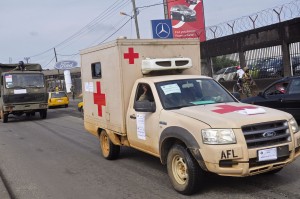
The Centers for Disease Control (CDC) confirmed the first case of Ebola hemorrhagic fever in the United States this week. The patient was found in the Dallas area.
But according to leading health officials, there is no need to panic.
“Ebola is a very serious disease but there is no reason to panic,” said Melanie Kohr, Vice-President of Clinic Operations for Passport Health, according to a press release. “As long as proper precautions are taken this is something that can be beaten. It isn’t an airborne pathogen, this isn’t something that can be easily spread. If we follow CDC instructions this will eventually be considered just a scare and not something more serious.”
The CDC reiterated that Ebola can not be spread through the air, water or through food. With the situation being contained in Texas, it is unlikely that Ebola will spread.
“The reason it really doesn’t have an enormous potential to spread is because, once it infects someone, the person becomes very ill and literally falls over and starts bleeding,” explained Dr. Gene Cole of BYU. “It gets attention.”
Cole went on to say that biggest problem contributing to the spread of Ebola overseas is the lack of effective control processes in health care facilities. Rural hospitals that are reusing needles and syringes and other medical materials exacerbate the problem. In America, there is little concern for such lack of procedure. “America has a great health care system,” said Cole.
On top of that, the U.S. has recently begun human trials for an experimental Ebola vaccine.
The CDC advises citizens to avoid contact with blood and body fluids, not to handle items that may have come in contact with an infected person’s blood or body fluids, and to especially avoid hospitals where Ebola patients are being treated. The U.S. embassy or consulate is often able to provide advice on facilities.
For more information on Ebola visit the CDC’s website at cdc.gov/vhf/ebola.




